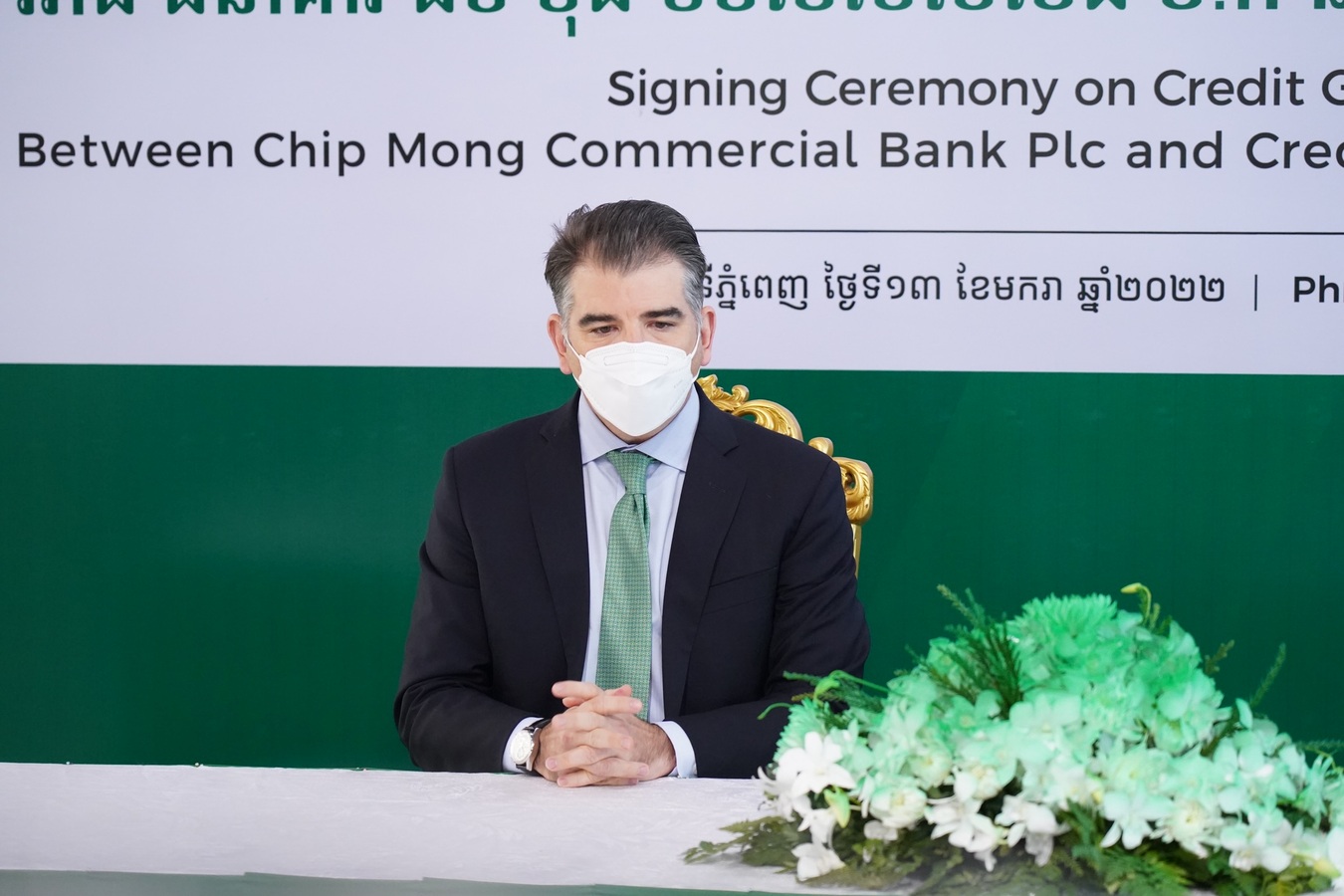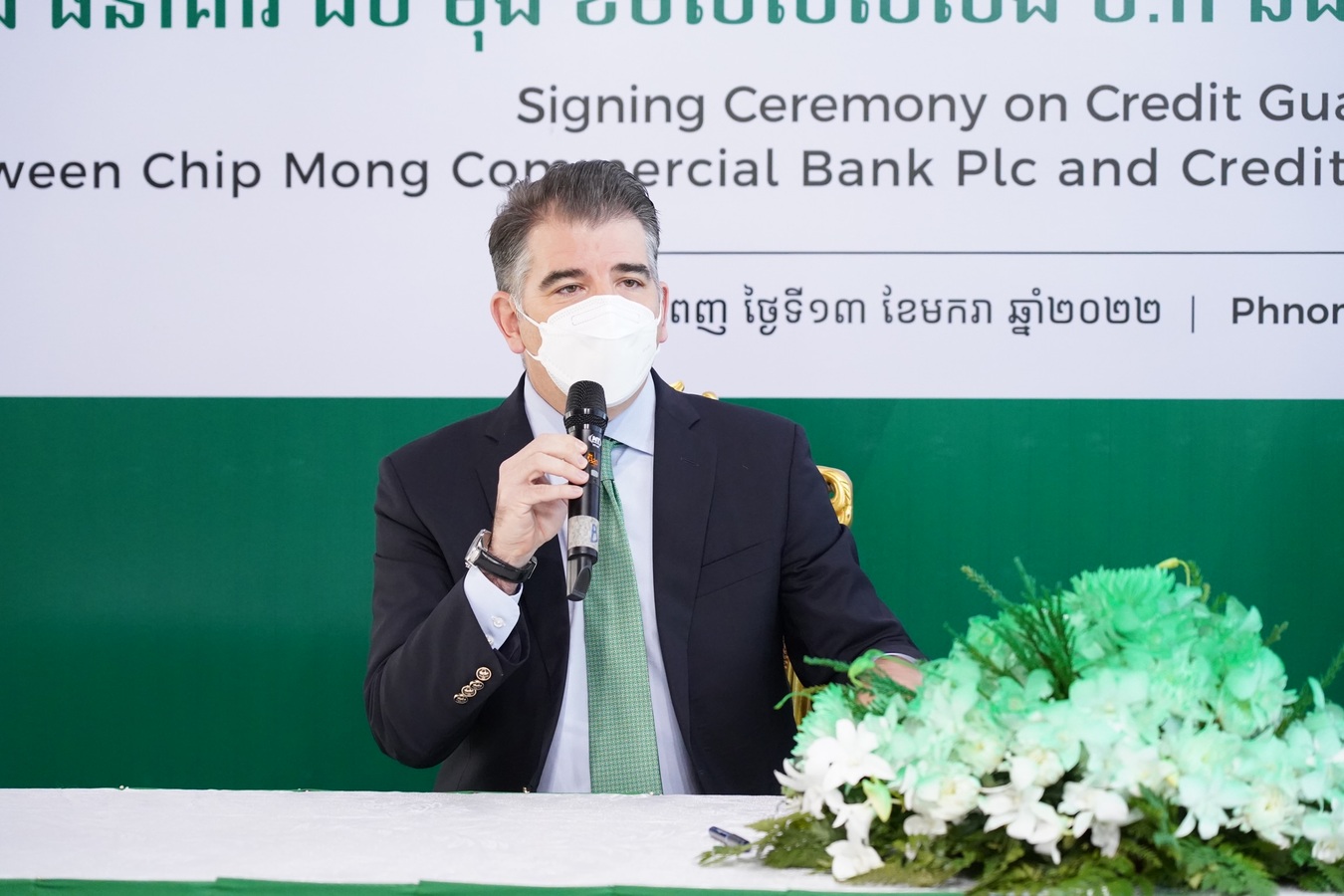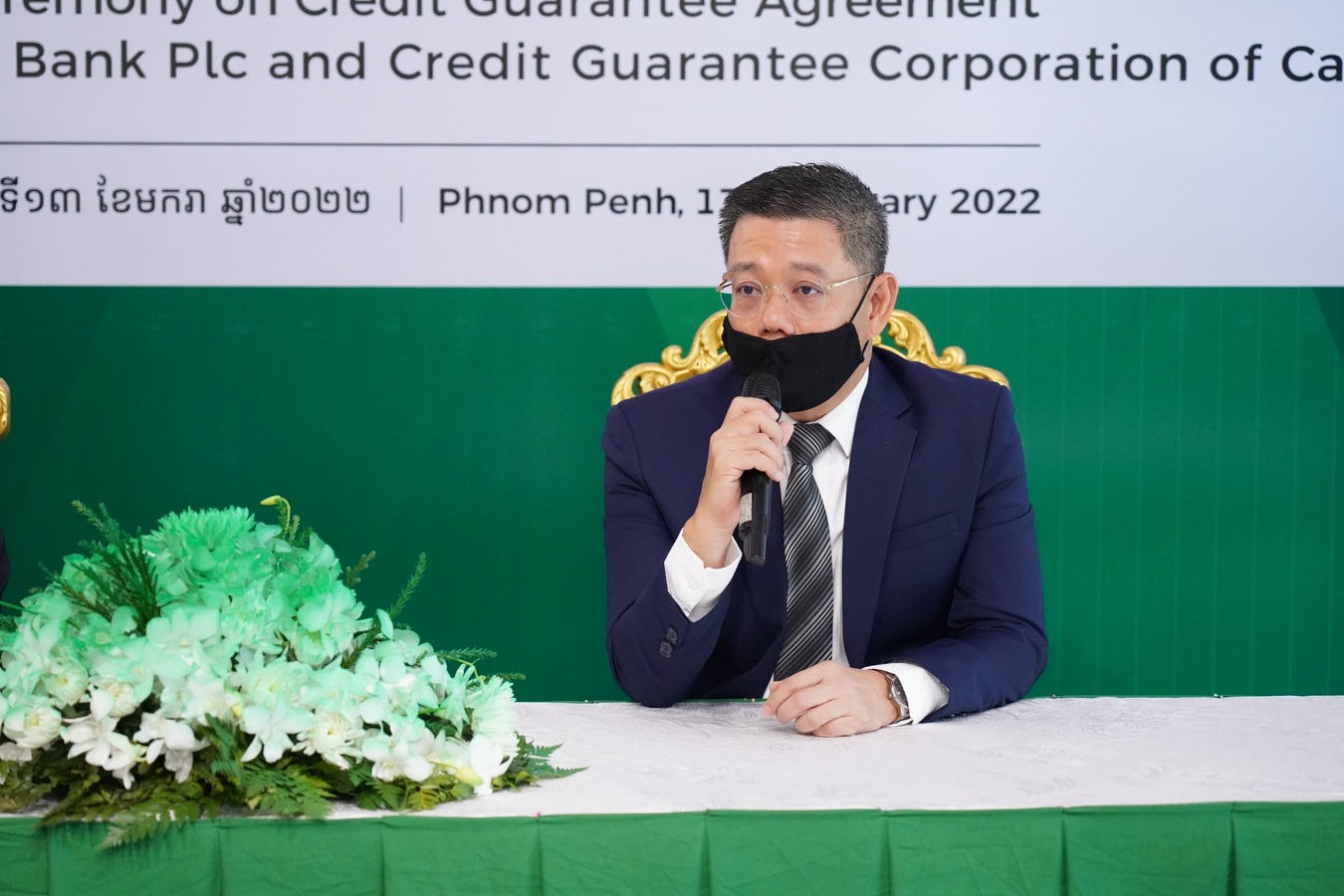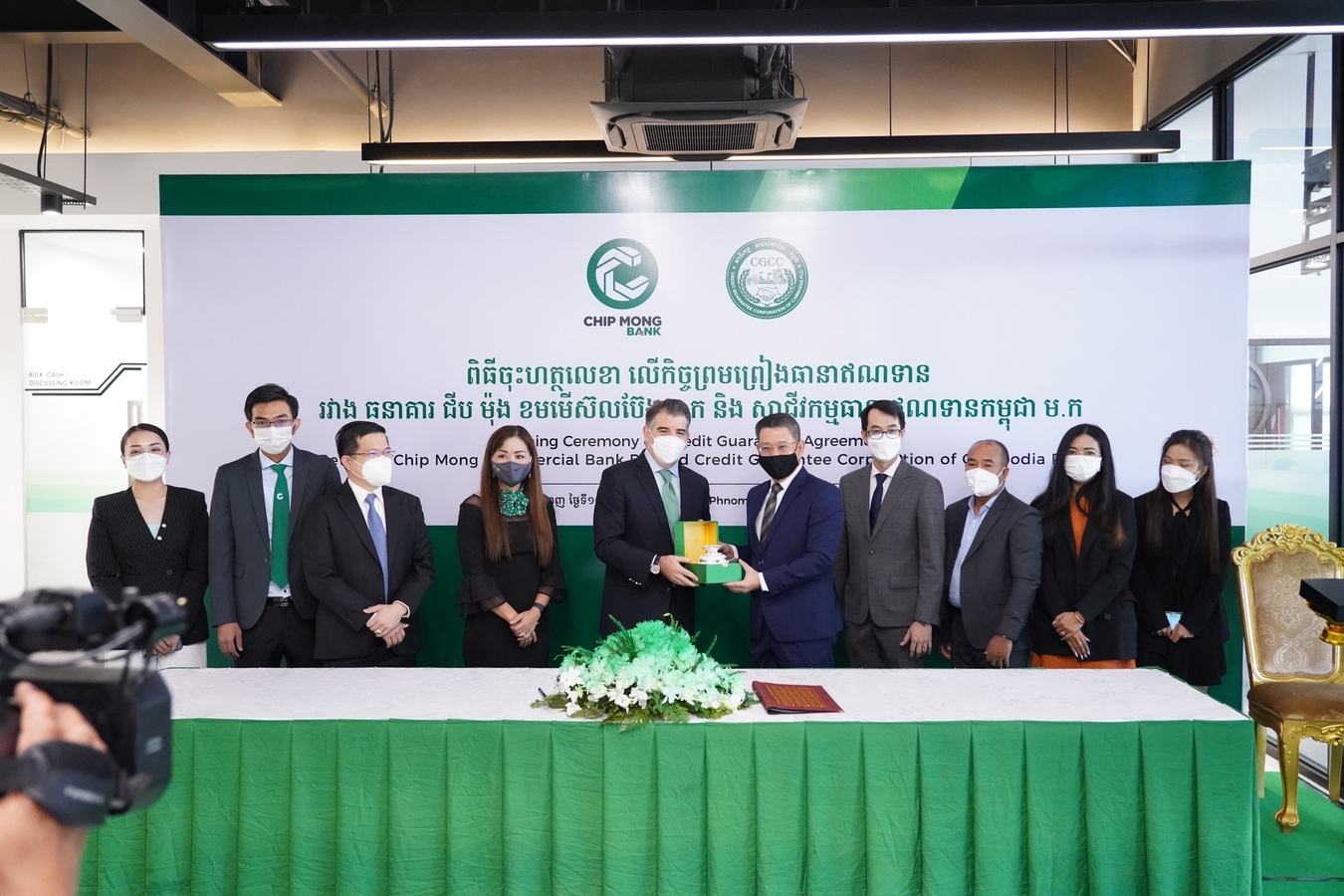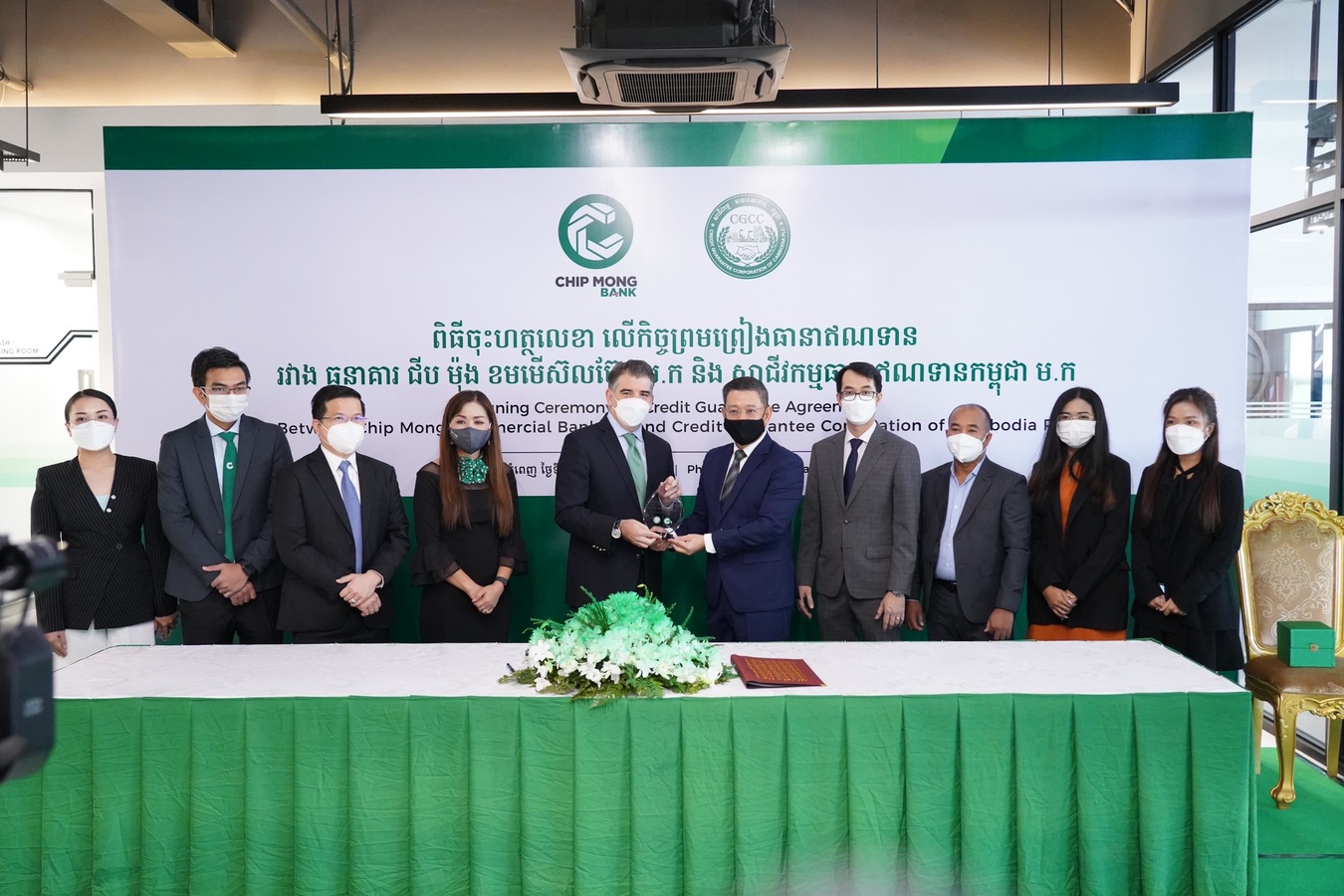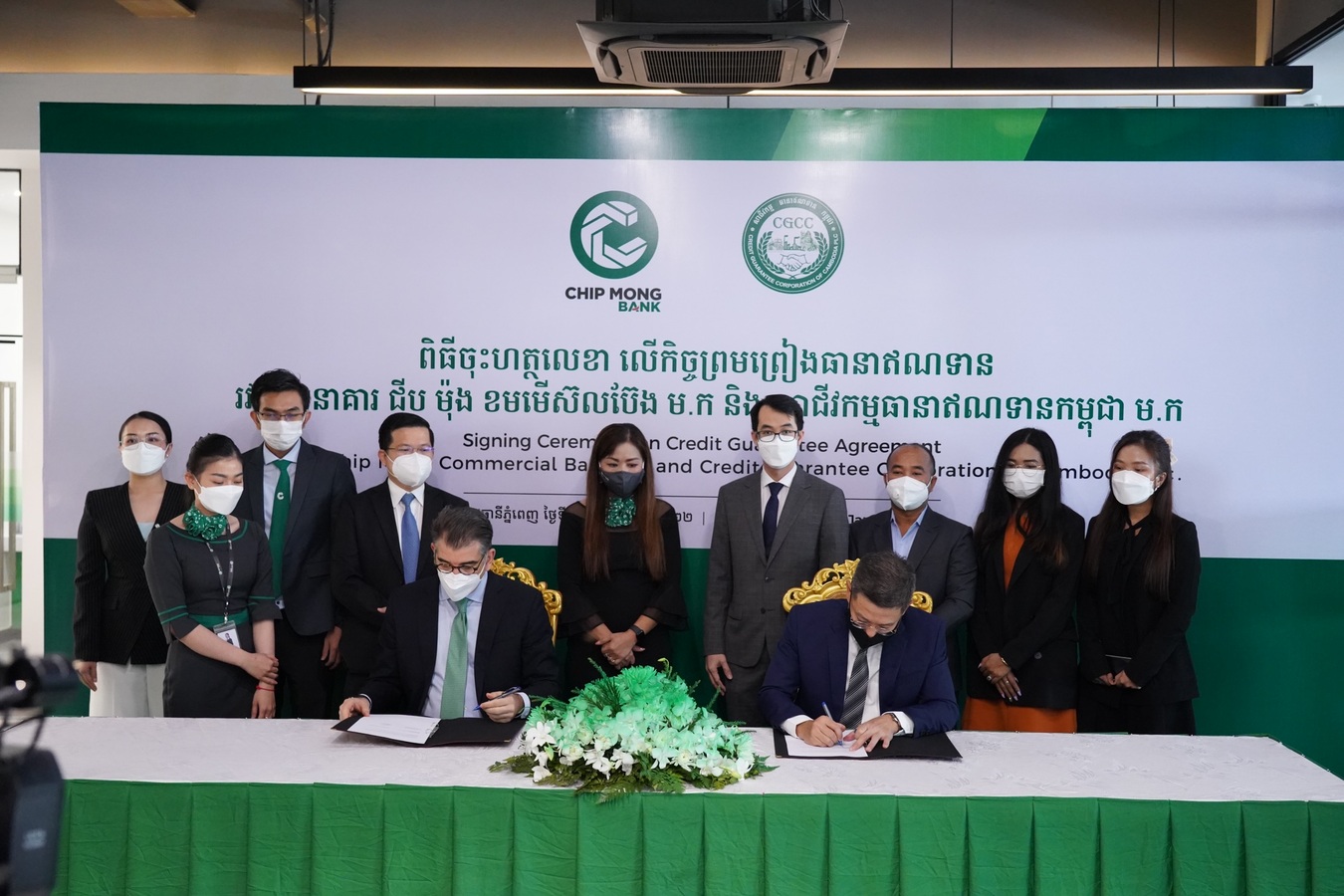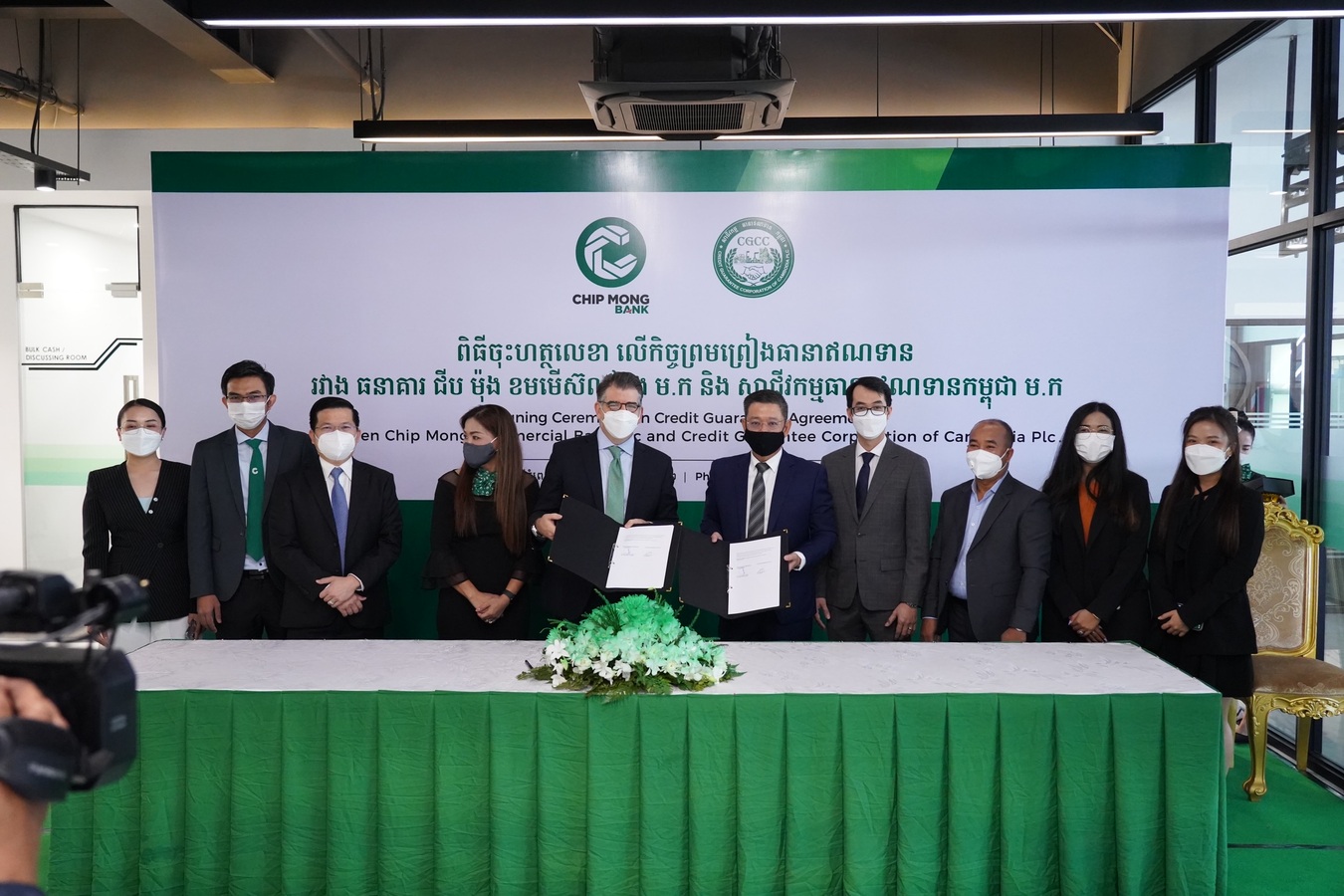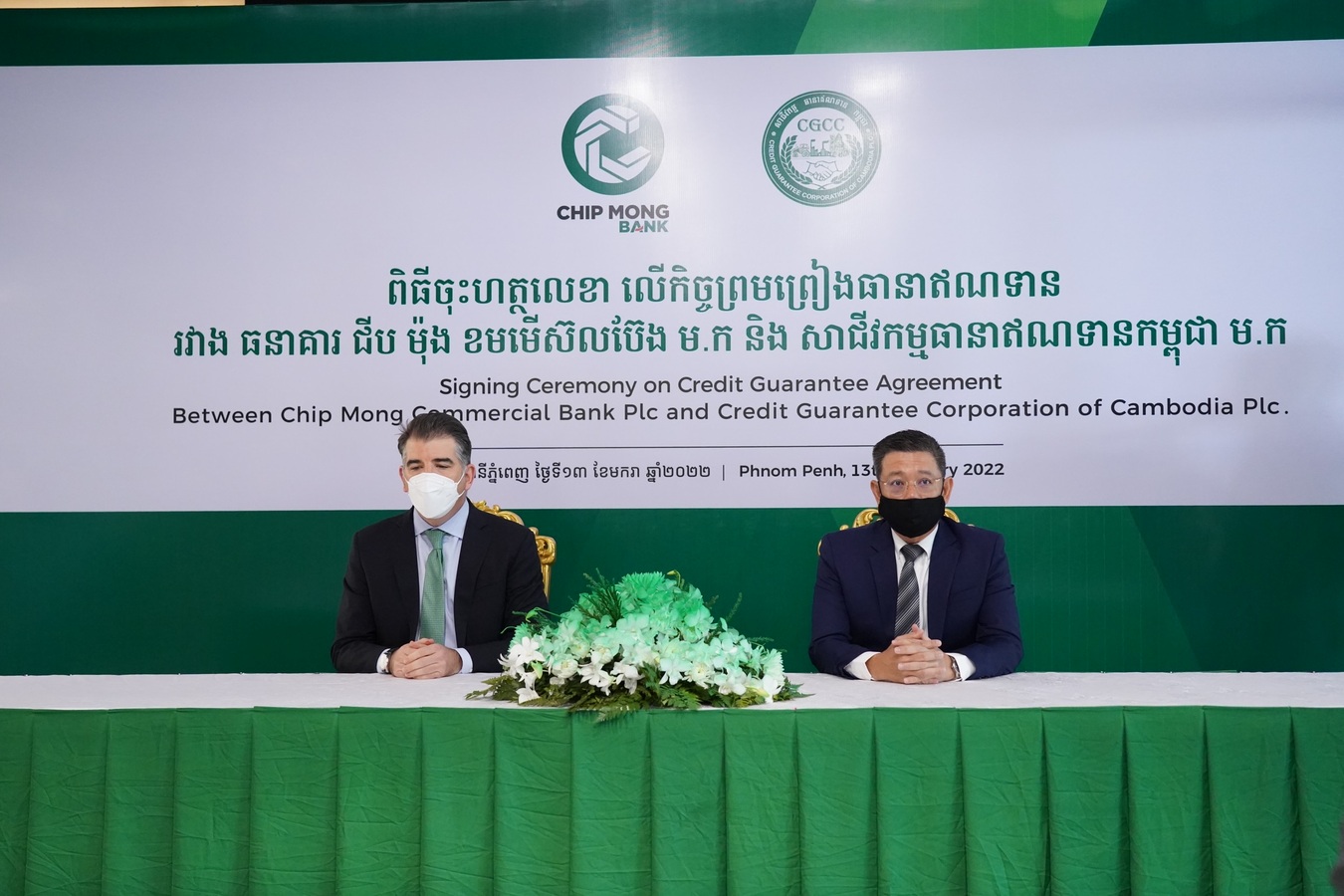On February 9th, 2022, Credit Guarantee Corporation of Cambodia (CGCC) and Cambodia Asia Bank (CAB) hosted a signing ceremony on Credit Guarantee Agreement at Sofitel Phokeethra Phnom Penh Hotel. The event was attended by Mr. Mitra Dwaipayan, Chief Operations Officer of CAB, Mr. Wong Keet Long, Chief Executive Officer of CGCC, and senior management from CAB and CGCC.

Mr. Mitra Dwaipayan mentioned in the ceremony that “CAB welcomes all the cooperation which is beneficial to all the stakeholders. From this partnership, MSMEs could request a loan from the bank to expand and operate their businesses even if they lack collateral, and the bank is more confident to give loans to the customers under this scheme. I think this scenario could not have happened without the great initiation from CGCC.”
Mr. Mitra has added that “About 30 years of CAB operation, we have contributed a lot to the banking and finance industry in Cambodia through our various products and services that benefit and serve our customers’ needs on time. We have also supported the prioritized sectors that have boosted economic growth. I believe that the cooperation between CAB and CGCC will help MSMEs as well as the banking and finance industry to be more developed.”

Mr. Wong Keet Loong, CEO of CGCC mentioned that “This partnership with CAB will be our 22nd participating financial institution (FI) in providing guaranteed loans to businesses. FIs are beginning to understand how the credit guarantee can benefit the FI in providing higher loan amounts to their borrowers despite being limited by collaterals.”
Mr. Wong added that “With more FIs participating in the credit guarantee scheme, CGCC hopes that more business owners all over the country will be able to access formal financing. This will enable higher economic activities that will drive the national economic growth.”
Please be noted that this agreement has been made especially for MSME owners which are in need of financial support to operate and expand their businesses, yet they lack collateral when requesting loans, so they still could request loans to CAB under this scheme.

About CAB
Cambodia Asia Bank (CAB) is the most trusted commercial bank that has been operating in Cambodia since 1993. CAB provided customers and business partners with various products and services such as loans, deposits, trade finances, international remittances, and global card payments such as Visa, Master Card, and UnionPay.
About CGCC
CGCC is a state-owned enterprise operated under the technical and financial guidance of the Ministry of Economy and Finance (MEF), and officially incorporated in November 2020. CGCC’s mission is to provide credit guarantees to lenders on loans made to businesses based on international standards to share the risk with lenders and to improve financial inclusion.
As of 02 February 2022, CGCC has supported 237 businesses by providing credit guarantees for their loan applications, amounting to more than USD 25 million. CGCC has provided the most guarantee to SMEs, which is accounted for 96% of the total businesses receiving the credit guarantee from CGCC.
Click here to read about: CGCC shares tips to access to guaranteed loans for Women Entrepreneurs











